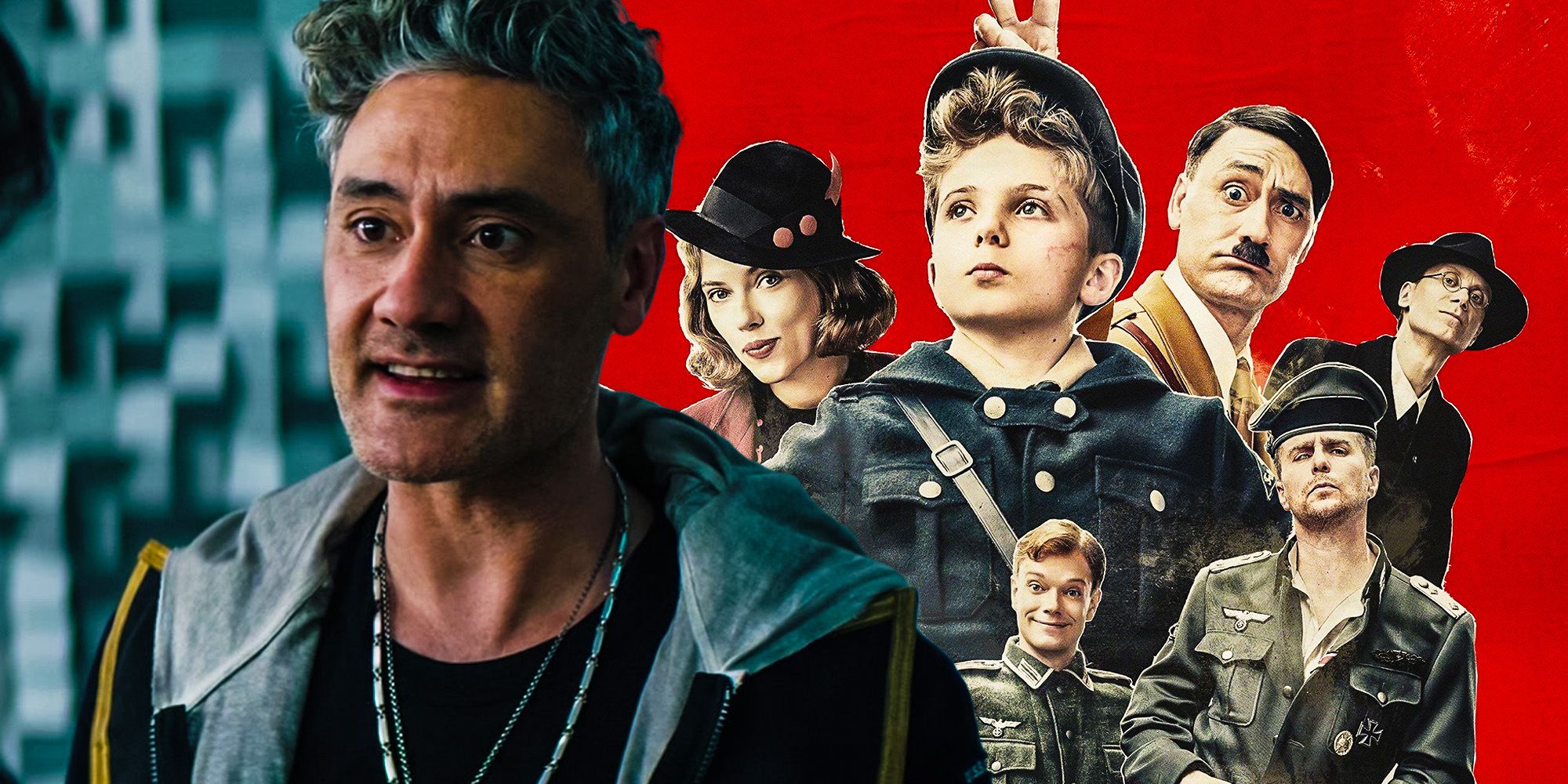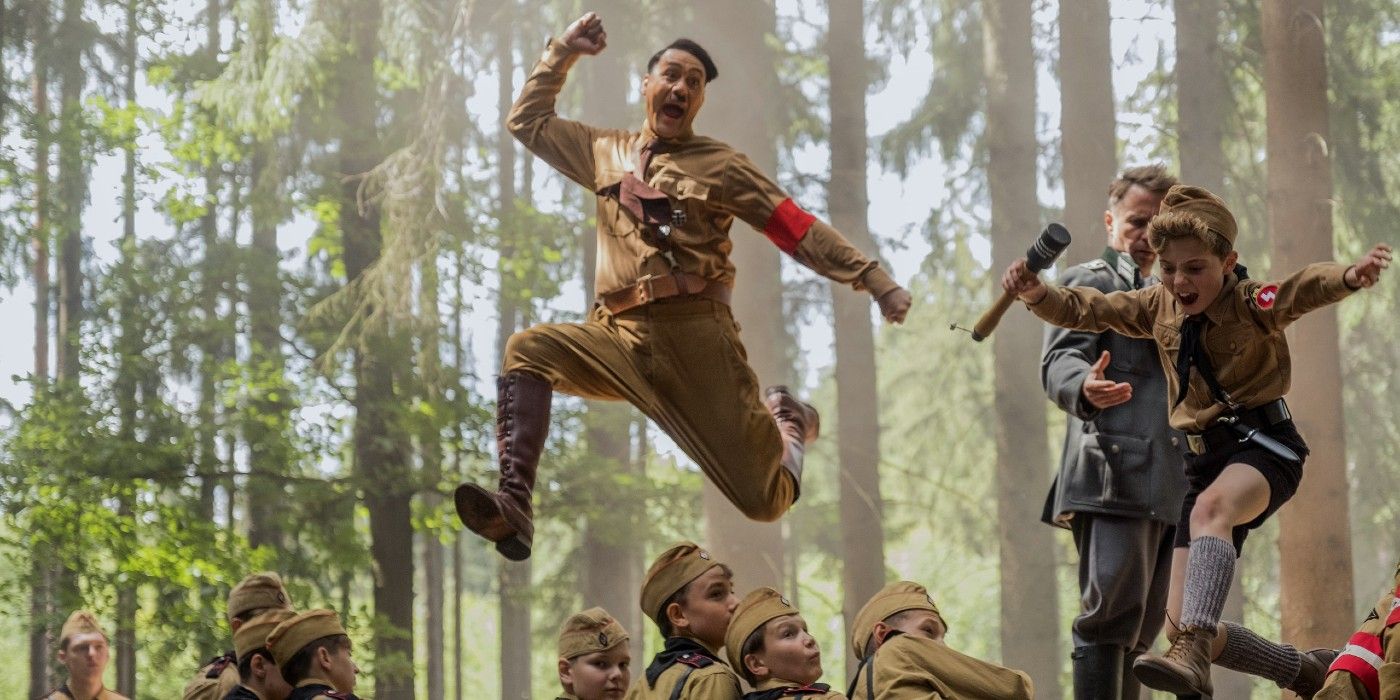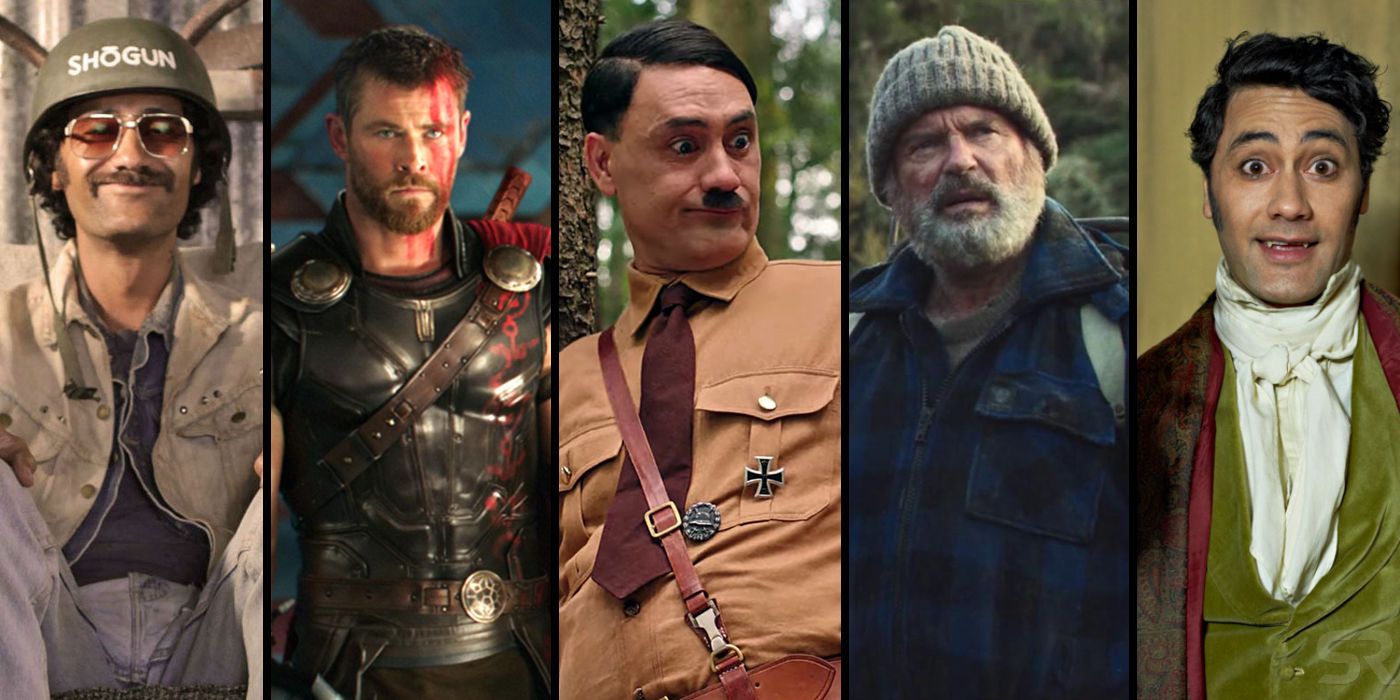Taika Waititi's Jojo Rabbit was well-received by critics and audiences alike, but three years since its release, the satirical war drama has encounterd quite a backlash on social media. The subject matter of the movie, which pokes fun at one of history's darkest figures, Adolf Hitler, concerns sensitive topics and so naturally would not be to the liking of everyone. Recently, though, a Twitter storm erupted against Jojo Rabbit, with some people claiming the movie is pro-Nazi and that Waititi's happy-go-lucky take on World War II and the Holocaust is inappropriate, while its defenders argue that the opposite is true.
The inspiration for Jojo Rabbit came to Waititi from the comparatively bleak 2008 novel Caging Skies, which tells of the Nazis' defeat at the end of World War II from the perspective of Johannes, a 12-year-old member of the Hitler Youth. He is forced to question his beliefs and loyalty to the German leader when he discovers that his mother is hiding a Jewish girl, Elsa, in their house. In its focus on the complicated coming-of-age aspects of the story, the movie version purposely takes a lighter approach to dark topics, including Nazism, antisemitism, wartime bravery, and propaganda.
Waititi, a Polynesian Jew, adapted Caging Skies in order to tell a tragic war story from an optimistic, innocent young boy's point of view. Despite its apparent success in 2019, Jojo Rabbit has divided audiences given the taboo nature of the material. But with the filmmaker's intentions being misinterpreted by its detractors, is Jojo Rabbit really Taika Waititi's most disliked film?
Jojo Rabbit Reviews & Awards In 2019
Upon release, Jojo Rabbit's reviews were mostly positive, and many critics went on to name it among the best movies of 2019. It holds a "Certified Fresh" rating on Rotten Tomatoes, with a current Tomatometer score of 80 percent and audience score of 94 percent. Most reviews at the time highlighted that the movie handles dark topics well, mocks Nazis in a witty, satirical way, and has authentic, emotional moments. On the flip side, it also received criticism from some reviewers for trivializing the horrors of war and including sympathetic Nazi characters.
Jojo Rabbit also did very well during the 2019 awards season. The biggest accolade that the movie won was the Oscar for Best Adapted Screenplay at the 92nd Academy Awards, where it was also nominated in five other categories, including being among the 2020 contenders for Best Picture. Waititi's script also won a BAFTA and a Writer's Guild of America Award while Roman Griffin Davis, who plays Johannes, earned a Critics Choice Award. The movie was also named the people's choice favorite by attendees of the 2019 Toronto International Film Festival, and it went on to gross over $90 million worldwide at the box office. So, despite the recent backlash, it's fair to say Jojo Rabbit performed exceptionally in 2019.
Recent Jojo Rabbit Backlash Explained
The backlash over Jojo Rabbit concerns some viewers claiming that the movie glamorizes the Nazi regime. The portrayal of Hitler as a comedic character is not for everyone, but he is presented that way on purpose. Jojo Rabbit is told from the perspective of a child who has been brainwashed by propaganda his whole life. For Johannes, Hitler is a comforting figure who manifests as the boy's imaginary friend, played by Waititi himself. Toward the ending of JoJo Rabbit, as Johannes becomes more aware of the dictator's tyranny, his companion becomes less friendly and more evil. The relationship culminates in Johannes iconically shouting "F**k off Hitler" while booting his former friend through a window.
The evolution of Johannes, from unquestioning follower of Hitler to anti-Nazi dissenter, makes the uproar all the more confusing. Waititi's movie is structured around the growth of a boy who comes to the realization that he is supporting the wrong side. For the audience to understand Johannes's initial devotion to the Nazi dictator, Hitler himself had to be portrayed as a figure whom children would love. The full arc of Johannes paired with the silly Hitler depiction makes it clear that Jojo Rabbit is anti-Hitler.
Another reason that some people dislike Waititi's war film is the prominence of Captain Klenzendorf, the nice Nazi who leads the local Hitler Youth camp. Played by Sam Rockwell, Jojo Rabbit's Klenzendorf is a secretly gay officer who helps Johannes hide Elsa from the Gestapo and later deceives Soviet soldiers into thinking Johannes is a Jew so they won't execute him. Klenzendorf is a subversion of the stereotypical Nazi, and his role is to show that some German soldiers were more nuanced than how they're usually portrayed. While he is not heroic, he is aware that he's on the wrong side of history. Despite this, Klenzendorf's inclusion in Jojo Rabbit is still problematic for some because of the controversy associated with creating even a somewhat sympathetic character based on a group that committed such horrible atrocities during World War II.
So is Jojo Rabbit universally disliked? Far from it. The backlash comes from a minority of social media users, with others quick to defend Waititi's adaptation as a satirical, anti-hate story that shows the danger of war and propaganda.
Waititi's Other Films
Taika Waititi has directed six movies. Five of those, including Jojo Rabbit, hold a "Certified Fresh" rating on Rotten Tomatoes. While Jojo Rabbit only ranks fifth among them in terms of critical favor, that is because of the brilliance of Waititi's other movies. The excellent Hunt for the Wilderpeople, an even more light-hearted coming-of-age comedy that focuses on the runaway foster child Ricky Baker, is justifiably his highest-rated effort. What We Do In The Shadows (co-directed by Jemaine Clement), Thor: Ragnorok, and Boy, all of which demonstrate the New Zealand-born filmmaker's knack for creating funny, charming movies, round out the rest of Waititi's top five.
Eagle vs Shark, his first feature, is Waititi's lowest-rated movie based on reviews, but to say it is disliked would be an exaggeration because the 2007 romantic comedy is considered a cult classic, falling in the same category as something like Napoleon Dynamite. Waititi has since become a reliable big-budget director, too. His latest blockbuster, the Marvel sequel Thor: Love and Thunder, is set for theatrical release on July 8, 2022, and recently he had his own Star Wars film confirmed following a successful stint as the director of The Mandalorian season 1 finale.
Waititi isn't shy about stepping in front of the camera either. In addition to his portrayal of an imaginary Hitler in Jojo Rabbit, he is known for his popular roles as Korg in the MCU and Antwan in Free Guy. Taika Waititi's movies, whether he's directing or acting, have typically received high praise. Despite the recent backlash and some online hostility towards Jojo Rabbit of late, the overall consensus, proven by its critical ratings, awards, and fanbase, is that the movie is among Waititi's best work.





